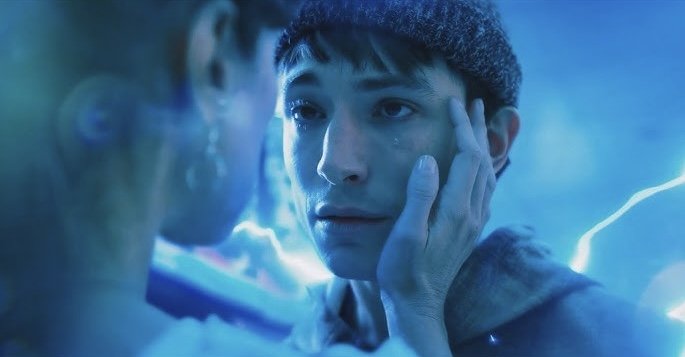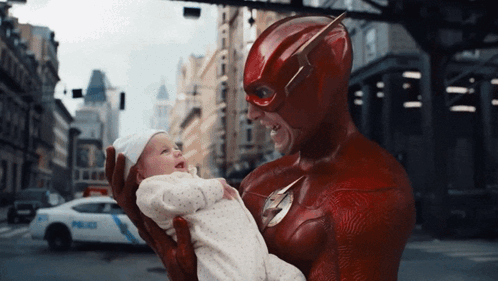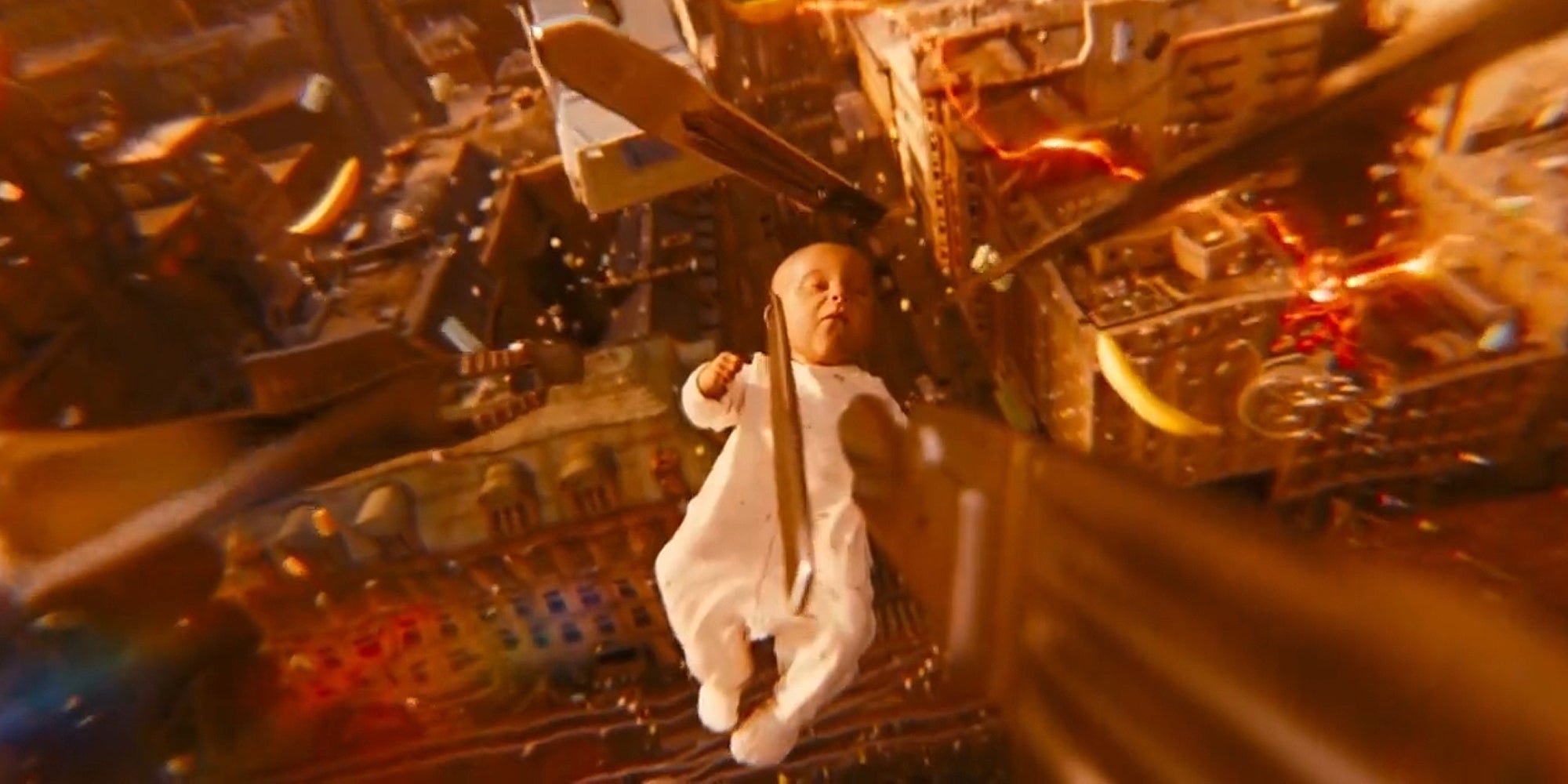The Flash: A DCEU Retrospective (Part 14)
Rating – 5/10
**SPOILERS**
Throughout its lifespan, the DC Extended Universe was saddled with a variety of challenges and innate flaws that would frequently hold it back. From Man of Steel to 2017’s Justice League, there was a heavy emphasis on copying the Marvel Cinematic Universe and a suffocating amount of studio interference. After that, there was a distinct lack of direction for the franchise. In its final years, this lack of direction would be compounded by a ridiculous amount of bad luck. The Flash may be the DCEU’s poster child for that last point.
This is a movie that was reported to be in the works in 2013 (this specific version that is. A movie centered around the Flash had been tossed around for decades at this point). It would get 7 different release dates, getting delayed and shifted around from 2018 to 2023. It burned through just as many directors and writers, due to the old excuse of “creative differences”. Its prospects would be instantly curtailed by the overabundance of superhero content and audience fatigue, the actions of one particular person associated with the production, and the imminent reboot of the DCEU obliterating any reason for audiences to be invested.
The Flash sees a returning Ezra Miller as the titular character, also known as Barry Allen. Here, Barry discovers his ability to run fast enough to travel through time, and decides to use this ability to prevent the murder of his mother. As a result, Barry fundamentally alters the fabric of reality, creating a new universe in which the Justice League doesn’t exist, a more immature version of himself is running around, and the only other hero around is Michael Keaton’s long retired Batman. As a result of his actions, Barry also opens the DCEU up to a new level of reality: the multiverse.
In a way, The Flash did manage to generate some level of interest. Using the multiverse plot (currently the very popular thing for superhero movies to do. Also arguably another attempt to ride Marvel’s coattails?), the film offered an explanation as to how James Gunn’s forthcoming replacement franchise would be introduced, with the altered history presumably setting the stage for Gunn’s new projects and actors. In a year in which fans were utterly lost with where DC movies were going, The Flash promised a logical answer to the most pressing questions.
Or at least, fans assumed it did. The Flash does nothing to set up Gunn’s new universe, and questions (such as would actors like Ezra Miller, Gal Gadot, and Jason Momoa still play their characters, would Michael Keaton be James Gunn’s Batman . . .) remained unanswered, if not becoming more unclear. Rather, the alternate universe seen in The Flash is treated as an excuse for nostalgia baiting, attempting to remind people of how much they love older properties, capitalizing on another popular cinematic trend. However, unlike similar films such as Spider Man: No Way Home, the Spider-Verse films, and (in a way) Avengers: Endgame, this doesn’t feel done with love and appreciation for what came before, and doesn’t really give fans much of the cathartic payoff found in the other examples listed. Callbacks to Keaton’s Batman films and the wider DCEU feel like something between obligations and last ditch efforts, lacking in enthusiasm and suffering from a sense of desperation.
Whereas The Flash’s attempts at fan service fall flat, its lead character holds it together. Ezra Miller has toned down the jittery, neurotic performance they delivered in Justice League, portraying a more mature, experienced Barry Allen, and becoming less irritating without losing the essence of the performance in the first place. Which is crucial, because when we meet Barry 2 (the product of original Barry’s time travel), he’s written to be more obnoxious than ever before. It’s meant to be irritating, and many people have found it to be so (especially with that laugh), but older, mature Barry is enough of a foil that both characters work well together and don’t ruin the movie. Truth be told, Ezra Miller is doing fantastic work. They nail the dual role of the two Barry’s, display genuinely strong comedic timing and a willingness to be self deprecating. Most importantly, Miller does a beautiful job on the emotional moments, especially during Barry’s scenes with his mother, really selling the central theme of the film about embracing scars rather than trying to fix them, and shockingly giving The Flash of all movies some of the most heartbreaking and moving moments in the entire DCEU. In the end, Ezra Miller proves to be probably the best part of the whole thing.
And by god, that sucks.
Remember how I said The Flash was held back due to the actions of one specific person? Yeah, suffice to say, Ezra Miller lost their f–king mind. In the couple months before The Flash’s release, there were reports of assault, burglary, harassment, filings of restraining orders, allegations of grooming a minor, and child endangerment. It’s an absolutely insane mental breakdown, featuring highlights such as Miller throwing a chair at a woman, blowing marijuana smoke into a baby’s face, declaring themselves a Native American messiah (Ezra Miller is not Native American), and mocking law enforcement on Instagram for being unable to track Miller down (with the amazing quote “You cannot touch me, I am in another universe”). This obviously created a PR nightmare for Warner Bros Discovery. Miller’s actions resulted in a lot of negative press, and put the studio in an extremely difficult situation. However, the studio had put too much money into the project, and couldn’t afford the serious losses they would take by delaying or cancelling the film. And so they went ahead and released The Flash, naturally keeping Ezra Miller off the promotional circuit, and hoped for the best. If that isn’t a ridiculous amount of bad luck for the DCEU, I don’t know what is (and it’s not even going to be the last time something like this happens).
Luckily, Miller isn’t the only strong point of the film. Michael Keaton’s Batman proves he can still deliver over 30 years after his last appearance. Admittedly, he does seem tired, and a bit bored replaying the hits, but he makes up for that with sheer presence. When Keaton puts that suit back on, age doesn’t matter. He is Batman again. The movements, the way he dominates the screen, that stark black silhouette standing out in the frame. Keaton simply being there allows him to steal every scene he’s in, giving him a sort of authority that Ben Affleck just didn’t measure up to.
Side note, a couple entries ago I mentioned a universe reset thing causing Keaton’s presence in the cancelled Batgirl movie. Basically there was a time when that was supposed to come out after The Flash, which actually was meant to reset the franchise enough that James Gunn wouldn’t have had to reboot and Keaton would have wound up becoming the universe’s main Batman. Of course The Flash got delayed to come out after Batgirl, which would have made nothing make sense, but Batgirl got cancelled anyway, so there you go.
The other big non-serial criminal high point of this movie: the direction by Andy Muschietti (director number 7 or 8). Muschietti brings a distinct creative feel to The Flash that stands apart from the rest of the DCEU, and it looks great (with a pretty big caveat, I’ll get there). I’m a big fan of a lot of his more dynamic shots and ideas here, and there’s a lot of really stand out visuals that can rise above a lot of the film’s notable flaws. There’s also some great instances of production design. I think the general concept of the Chronobowl, the sub-liminal space where Barry time travels, is such a cool design in particular. Muschietti also directs speed powers really well. The choreography, color, and shot design make for a really distinct and entertaining depiction of Barry’s speed, and Muschietti brings a lot of genuinely very interesting ideas to the table.
That caveat I mentioned, however, is the execution. The Flash famously got a lot of criticism for its visual effects, and at times (can’t believe I’m saying this again only a week after the Black Adam review) might make for the worst CGI in the DCEU. There are a ton of CGI shots in this movie, and a lot of them really drag down Muschietti’s better ideas (especially the Chronobowl, which is packed with lifeless, dead-eyed models of various characters). Muschietti defended the effects after release, calling them an intentional depiction of what Barry sees while running, and while I actually do buy that for some of the landscapes and wide shots of Barry running, it does not justify the atrocious models on display, featuring nightmarish digital babies and ghoulish renderings of various actors. Speaking of which (big spoilers from this point on, just in case you think that’s a big deal).
The finale in the Chronobowl, in which timeline tampering by the Flash’s causes several different realities to collide, allows for a series of cameos from past DC actors, many of whom are deceased (such as Christopher Reeves’ Superman and Adam West’s Batman). Looking past the very poor, at times AI-esque visual effects, digital resurrections of actors are extremely ethically questionable, especially when such callbacks to the past feel as profit/attention driven as they do here. It’s a murky topic that drags down what could be a really fun idea (also consider, George Reeves, an actor known for playing Superman in the 50s, took his own life after his work as the character left him typecast and unable to find more roles, making his digital appearance here extremely tasteless).
The Flash features some other major characters in more substantial roles than mere cameos, and unfortunately none of them really live up to the work done by Miller and Keaton. Most significant is Sasha Calle appearing as the character Supergirl, Earth’s resident Kryptonian in place of Superman, after Barry’s history altering shenanigans. I don’t doubt Calle’s effort and commitment to the role, but she really isn’t given much to work with, not getting much of an opportunity to show off an emotional range or charisma, and not getting enough screen time for a full, fleshed out character. It’s a fault of the script rather than the actor, especially with how poorly the character is treated in the end. On the other side of the spectrum, we have two DCEU veterans.
First is Michael Shannon’s General Zod (as Barry’s time travel places him back in 2013). While Shannon was a highlight of Man of Steel, here he was very open about not being as interested in the story (notably comparing it to a kid playing with action figures, as opposed to the character depth he worked with in 2013), and his boredom clearly comes through in his performance. On a similar note, Ben Affleck’s Batman does briefly return prior to the history altering, and you can really tell that he was ready to put it all behind him (he did have what was probably a pretty rough go with DC). The emotional investment just isn’t there anymore.
Overall, The Flash is fine. It’s far from the worst in the DCEU, there’s some genuinely strong work from several people involved, and in spite of its flaws, it does have a genuinely entertaining tone and some strong ideas worked into its story. But it is working against a lot of negative factors, such as the looming shadow of Ezra Miller’s crime spree, the slathering of terrible CGI, and the sense of meaninglessness due to the impending end of the DCEU. While The Flash was poised to give the most answers about how James Gunn’s reboot would come about, but left things more unclear than ever. Ezra Miller obviously couldn’t stay signed on as The Flash, but the film doesn’t clearly retire his character (and also establishing Jason Momoa’s Aquaman still exists in the end credits). It doesn’t explicitly set up a future in whatever new continuity Barry created, but also doesn’t really write it off. Most baffling, the film ends on the reveal that Barry, after attempting to undo his past time meddling, has wound up in a universe where Batman is no longer played by Affleck or Keaton, but George Clooney (reprising the role from arguably the most hated DC movie, Joel Schumacher’s Batman and Robin). At the time, The Flash only added onto the existing confusion (people actually thought Gunn was picking the most disliked Batman actor to spearhead his universe reset. That’s not an insult, I thought that too for a second). As it would turn out, this final scene would be reshot multiple times, and at a time, The Flash was meant to establish a new direction forward that would allow most elements of the old DCEU to continue, while being mixed in with some of James Gunn’s newer aspects.
Of course, less than a month after The Flash’s premiere, Gunn would announce David Corenswet as the new actor playing Superman, and over time it would be eventually confirmed that his soft reboot would be much closer to a full reboot (I guess leaving Ezra Miller banished to the Schumacher universe, which feels right honestly). In a way, The Flash represents an end point for the DCEU, with most of its history revised and its Batman replaced. In his brief screen time, Ben Affleck’s Batman tells Barry that the scars people have make them who they are, and people aren’t meant to go back and fix them.
However, the sentiment feels undermined by the knowledge that it’s being espoused in a film that was originally going to erase many of the so called scars of the DCEU (including Affleck’s Batman), and came out during a time when the whole thing had gotten so screwed up they were just going to start over anyway. The message ultimately rings hollow, and The Flash feels like it was sent out to die, with no shot at making enough money to be profitable (due to the many factors against it, and the budget getting far too big from all the delays, the film bombed hard). I think there’s a world where The Flash could have been something special, but in this one, it’s just a victim of bad luck, a studio that had no idea of what to do, and an audience that didn’t know what to make of it all.











